 Petzlover
Petzlover Bristol is originated from United States but Korat is originated from Thailand. Both Bristol and Korat are having almost same weight. Bristol may live 5 years more than Korat. Both Bristol and Korat has same litter size. Both Bristol and Korat requires Low Maintenance.
Bristol is originated from United States but Korat is originated from Thailand. Both Bristol and Korat are having almost same weight. Bristol may live 5 years more than Korat. Both Bristol and Korat has same litter size. Both Bristol and Korat requires Low Maintenance.
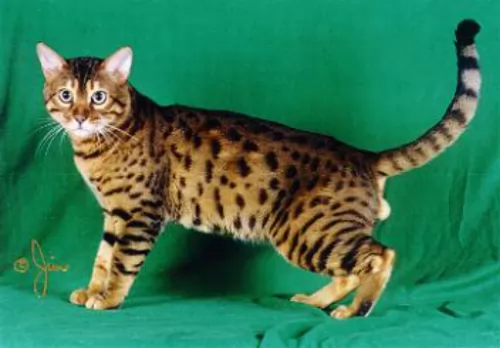 The Bristol cat hails from Texas and was developed during the 1980s, using a south American wild cat and domestic cats.
The Bristol cat hails from Texas and was developed during the 1980s, using a south American wild cat and domestic cats.
The Bristol cat isn’t well-known and in fact, its origins are shrouded in mystery.
The cat was recognized and admitted into the TICA (The International Cat Association. It is looked upon as a hybrid breed or a designer cat.
Nobody seems to know when the first Bristol cat was even bred. Because of its exotic nature, it is believed to be a cross between the American Shorthair and the margay or similar breed.
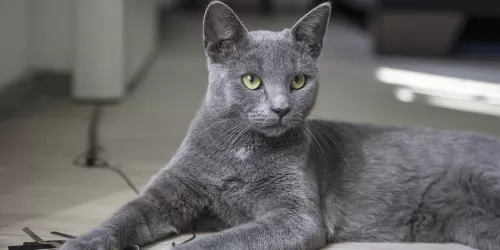 The Korat cat is a breed of domestic cat. He is a natural breed and originates from Phimai in Thailand.
The Korat cat is a breed of domestic cat. He is a natural breed and originates from Phimai in Thailand.
It is thought that the cat is named after its province of origin – Nakhon Ratchasima Province which is actually called Korat by the Thai people.
The cat is also known as the ‘Good Luck’ cat. The cats first appeared in Britain under the name Blue Siamese and later in the United States in the 1950s.
It was in 1959 that a cattery started with breeding and in 1966 the Korat was accepted into championship status.
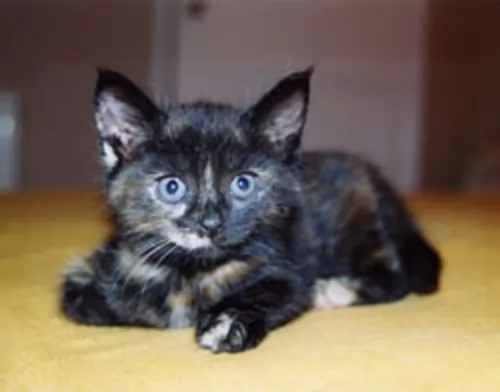 Bristol cats are medium-sized and muscular, powerful cats. They are much like Bengal cats. They have a smokey charcoal appearance while others have quite a bit of white on them.
Bristol cats are medium-sized and muscular, powerful cats. They are much like Bengal cats. They have a smokey charcoal appearance while others have quite a bit of white on them.
They also have rosettes and small rounded ears. The origins of the Bristol breed are uncertain but it seems a multi-colored cat was adopted by a United States Army captain in Australia.
The cat was so adored it was brought back when they returned to the United States. The cat was already pregnant and she gave birth to 2 kittens. The coats are shiny and short-haired with spots and lines of fawn, grey and brown mostly with the eyes being green.
The Bristol cat has a very pleasing disposition – being amicable, playful, and loving. They’re intelligent cats too but they need to spend time in solitude as well.
They definitely don’t respond and bond to everyone in the human family but tend to respond to only one person.
These Bristol cats are cunning and self-confident and because of their wild side, they will need a large area to roam. This is definitely not a cat for city life.
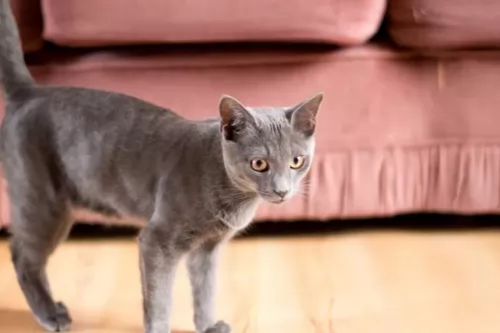 The Korat is a short-haired, single coated cat breed that has a small to medium build. He stands at about 25 – 30cm in height.
The Korat is a short-haired, single coated cat breed that has a small to medium build. He stands at about 25 – 30cm in height.
He weighs about 3 to 5kg. He is known for his large, beautiful green eyes. It’s a beautiful blue-grey cat with unusual coloring - a shimmering silver-tipped blue that the Thai people refer to as ‘rain-cloud grey’.
With his silver-tipped blue-grey coat and large green eyes, this is indeed a beautiful cat.
The Korat is a friendly cat and can get along well with children who have been taught to be kind to animals and to respect them.
They’re also cats that like to make friends with other pets in the family. They also enjoy the companionship of their human family. They’re intelligent cats too and you won’t have trouble teaching him a trick or two.
He doesn’t want to be left alone and if you work full-day, it would be best to get such a cat another cat companion. He isn’t a noisy cat but fairly quiet, enjoying a quiet environment.
 The Bristol cat is beautiful all right, but once again humans should just leave wild cats alone in the bush.
The Bristol cat is beautiful all right, but once again humans should just leave wild cats alone in the bush.
Mixing them with domestic cats doesn’t work in the long run, and many of these cats land up in shelters because of unruly behavior. The Bristol cat is part wild and it doesn’t seem to have a future although there isn’ enough information online to really know what its future is.
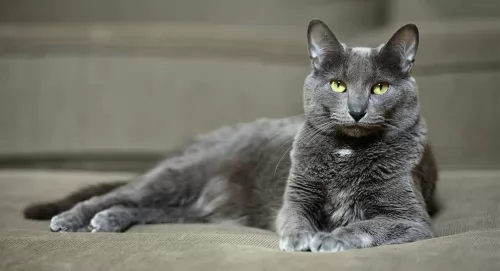 Think carefully before you take a cat into your life. If you are hardly ever at home, some cat breeds are very social, and this quiet, solitary lifestyle will be detrimental to their health.
Think carefully before you take a cat into your life. If you are hardly ever at home, some cat breeds are very social, and this quiet, solitary lifestyle will be detrimental to their health.
If you aren’t willing to learn what the nature of a cat is, your cat will be unhappy and you’ll spend a lot on vet’s fees as his immune system will be compromised.
It would be most unkind to take a Korat cat into your home and not understand something of its behavior. A cat such as the Korat thrives on plenty of love and attention.
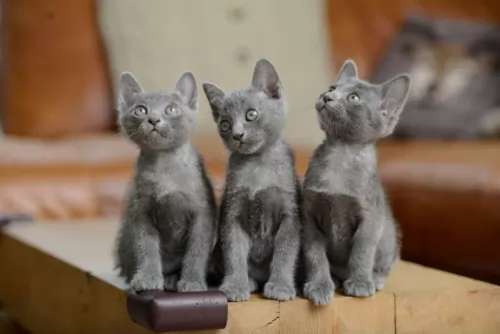 The Korat is generally healthy but even so, there are always one or two cat ailments that need to be sorted out.
The Korat is generally healthy but even so, there are always one or two cat ailments that need to be sorted out.
If your Korat cat succumbs to any one of the common cat illness there are, get veterinary help. These illnesses can be cancer, feline leukemia virus, diabetes and heartworm among others.
Feline Lower Urinary Tract Disease (FLUTD) can be found in male and female cats, often occurring in cats that are overweight or stressed.
Your cat will strain to urinate, may vomit, will have a lack of appetite, lick around the urinary area, and be most miserable. The problem is regarded as an emergency and you need to get your cat to the vet as soon as possible.
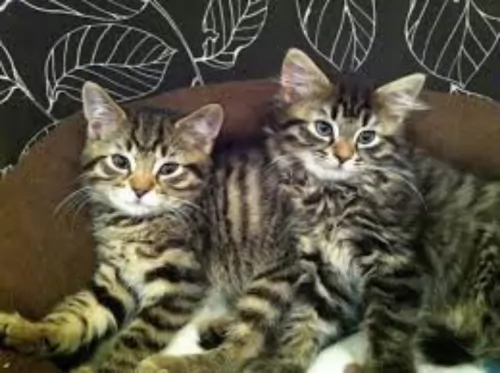 The diet of a cat such as the Bristol will include small rodents, however once domesticated, these cats will need a diet high in protein. The cat is a carnivore and to be healthy it will require high-quality premium commercial cat food that is appropriate for the age of your cat and his health status.
The diet of a cat such as the Bristol will include small rodents, however once domesticated, these cats will need a diet high in protein. The cat is a carnivore and to be healthy it will require high-quality premium commercial cat food that is appropriate for the age of your cat and his health status.
The best cat food has taurine in it, an essential protein that cats can only obtain through quality food. Your adult Bristol cat may prefer eating several smaller meals and this is actually a good idea as smaller frequent meals help towards greater urinary tract health.
If you want a healthy cat, you have to be diligent with providing such a cat with good food that is high in protein. If you aren’t sure, your veterinarian will be able to advise you on what to feed your new cat or kitten.
Factors such as age, size, activity levels, and health make a difference to what you feed your cat, how much and how frequently.
Get into a habit of reading and understanding the labels on the cat food packaging. Certainly, every cat requires taurine, an essential amino acid. You will also need to ensure fresh, cool water day and night.
Always take your pet to the veterinarian if he is lethargic ad disinterested in his food.
Most cats are clean, but you should brush or comb your Bristol cat regularly as the brushing helps keep your cat's coat shiny and also reduces the amount of hair during shedding.
Provide your Bristol cat with a dry, warm sleeping area and keep the bedding clean.
Your Bristol cat needs to wear a safety collar and an ID tag. These ID tags or an implanted microchip can help ensure that your Bristol cat is returned if he becomes lost.
Cats scratch, and cutting your cat’s nails will keep the nails blunt. Nonetheless, to prevent your furniture from being scratched, provide your cat with a strong scratching post covered with a rough material such as sisal or tree bark.
Bristol cats are independent and they don’t require any kind of special care. Certainly, they require large areas for their active lifestyle as well as a shallow pool for swimming.
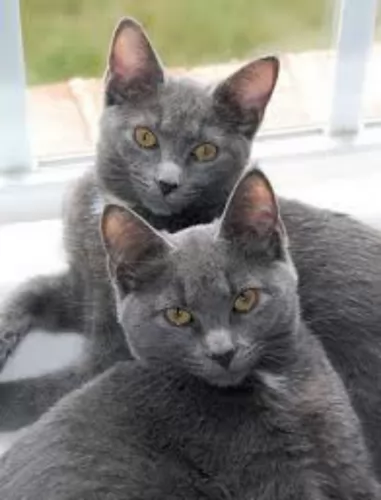 The Korat’s short single coat requires little grooming. You can brush it once a week to remove shed hairs.
The Korat’s short single coat requires little grooming. You can brush it once a week to remove shed hairs.
Trim the nails when they become too long.
Check your cat's eyes and make sure they’re still bright and clear.
Check the ears when you brush your cat and look out for signs of redness which could indicate an infection. Pet groomers or your vet can show you how to groom your cat or you can take your pet to the pet groomers.
Provide your cat with a litter box and keep it spotlessly clean. Remove the feces every single day. The litter will also need to be changed periodically.
Have your cat neutered or spayed.
Vaccinate against the major cat illness.
A good diet is essential for good health, and in fact, a cat’s food needs to be adapted to the different seasons of a cat’s life.
Cats are carnivores and they require nutrients from animal products. They need a mix of vitamins, fatty acids, minerals, and amino acids.
There are excellent commercial cat foods on the market, whether it be dry food, semi-moist food or wet food. These foods have been made to give your cat the right balance of nutrients.
In choosing cat food, it is important to consider your pet’s age and energy levels and it is also important to read the ingredients list. Look for foods in which meat is at the top of the ingredients list.